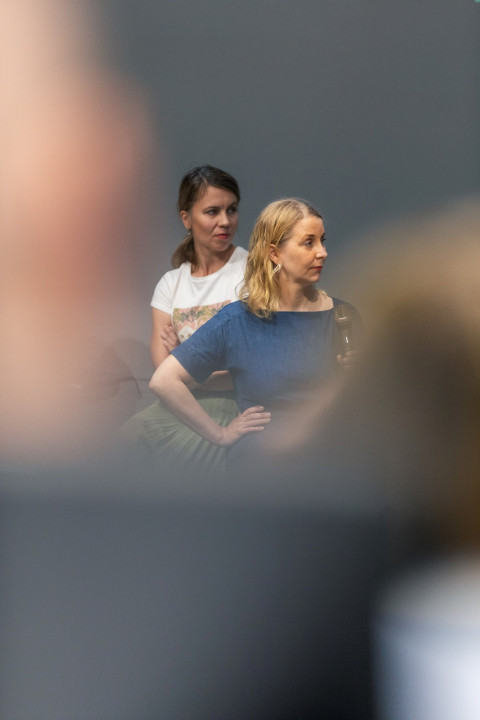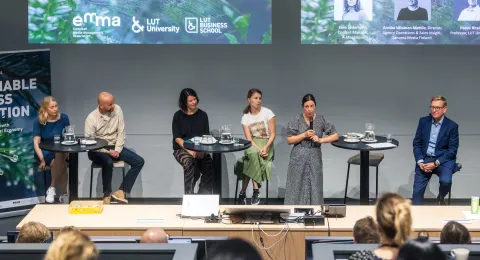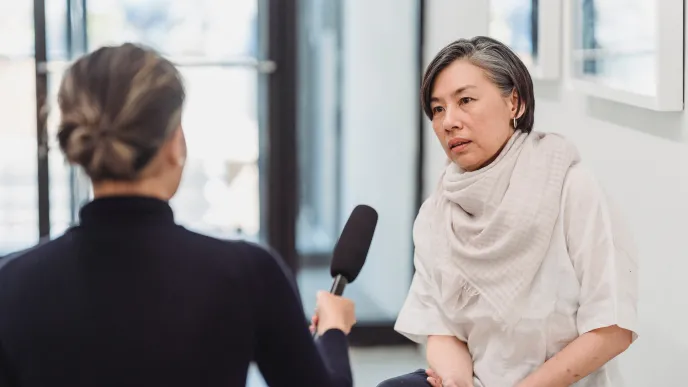Machines will never replace journalists, but artificial intelligence and journalists will collaborate more and more closely. We gathered a few key points on how to utilize artificial intelligence in editorial processes from media industry experts and researchers in the emma Summer School panel discussion.
Kirsi Hakaniemi, chief digital officer at the Keskisuomalainen Group:
"We’ve established a 30-person test group that is experimenting with AI tools like ChatGPT, and we’ll be analyzing the results of the testing in the coming weeks. By experimenting, I mean thoroughly testing the tool in our own work tasks. The testing also needs to be planned.
We’re interested in addressing these key questions regarding AI:
1 How to maintain ethical principles and transparency for our readers?
2 What kind of content will people be willing to pay for in the future?
With ChatGPT, we’ve only witnessed the first wave of what AI is capable of. In the future, different industries will develop their own AI tools tailored for their specific purposes."
Atte Jääskeläinen, president of the Finnish Innovation Fund Sitra:
“AI is a way to repeat things that have already been done. So, how can something entirely new be created with the help of AI? What new things can journalists offer?
Analytics that measures human behavior always lags slightly behind, and relying on it is short-sighted. It would be more important to determine what people's needs are and how journalism can respond to them.
The key point seems to be utilizing AI at a higher level than others."

Paavo Ritala, professor at LUT Business School:
"AI aims to imitate humans, and this original intent has been partly achieved. Making predictions is now easy and affordable with the help of AI. It’s easier for organizations to decide what to do next.
At the same time, the price of content and creativity is decreasing. Freelancers are facing challenges due to reduced work opportunities.
The most skilled journalists don’t necessarily benefit from AI as much as the less skilled ones, as AI enables everyone to produce relatively high-quality content. In any case, those who know how to utilize AI the best get the most out of it.
Machines are driving us to be faster and more efficient, but what should we do with all the leftover time and increased productivity?"
Anu-Elina Lehti, producer of HS Vision at Helsingin Sanomat:
"When HS Visio was launched in March 2021, the editorial team had a clear vision of what topics were interesting. We covered several stories about artificial intelligence as well. When the analytics that tracked reader numbers didn't match our journalists' expectations, I was initially shocked. I wondered what on earth we’d done wrong. Then came the breakthrough of ChatGPT; people got to try the AI tool themselves, and articles on the subject quickly became some of the most read in our collection.
In essence, as various media outlets and the entertainment industry fiercely compete for people's time, readers only want to pay for content that benefits them. Content that is too abstract doesn't capture interest."

Jukka Niva, head of the Yle News Lab:
“I predict that everything that can be automated in a journalist's work will be automated. Journalists must rethink their professional identity. Machines will never replace journalists, but artificial intelligence and journalists will collaborate more and more closely.
But what’s the societal impact of artificial intelligence?
Five years ago, there was AI hype at the corporate level; now we are experiencing the same hype at the consumer level. However, this is by no means an insignificant level, as consumer hype sets global money in motion.
An AI tool is just a tool, and now we must decide what to do with it. It might be essential to focus on the service itself rather than the media.”
Eeva Sederholm, content manager of A-magazines:
"What do people expect from journalists? Journalism must offer something more distinctive than what basic online searches provide.
The big question is how to verify facts to readers when AI can replicate anyone’s voice and image. AI is already being used for scams and criminal purposes.
It's truly frustrating for journalists to have to prove to readers that we’re telling the truth and fact-checking. Some people are reluctant to believe any assurances."
Annika Väisänen-Mattila, head of agency operations and sales insight at Sanoma Media Finland:
"In marketing and especially in media buying, AI tools have been commonplace for years, enabling measures such as precise targeting.
In the future of media advertising, the challenge revolves around reaching audiences by bypassing AI assistants. People who rely solely on an AI assistant might not follow news from media outlets, paying little attention to advertisements published in them. This prompts us to consider new perspectives.
The impact of ChatGPT on B2B sales is an intriguing question as well. We need to consider how AI tools could enrich sales work through enhanced assistance, and with the right communication, potentially win over even those who previously declined sales offers."





